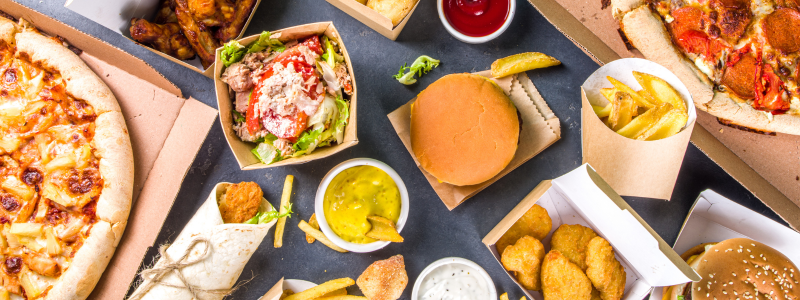Welcome to the ultimate guide on weight loss success! Are you struggling to shed those extra pounds and achieve your desired body goals? Look no further! This comprehensive resource offers practical tips, expert advice, and strategies that can help you overcome bad habits and achieve a healthier lifestyle. We know how important it is to feel confident, fit, and full of energy, and that’s why we’ve curated the most effective and sustainable methods for lasting weight loss.
In this guide, you’ll find valuable insights on various topics such as poor diet choices, lack of physical activity, inadequate sleep, unhealthy coping mechanisms, unrealistic expectations, and the importance of a strong support system. By addressing these common obstacles, you can start to transform your life and enjoy the countless benefits of a fit and healthy body.
Don’t let those stubborn bad habits hold you back any longer! Let’s embark on this journey together and unlock the secrets to successful weight loss. We’re here to support and guide you every step of the way, so you can finally say goodbye to yo-yo dieting, emotional eating, and a sedentary lifestyle. Get ready to embrace a new, healthier you with our actionable advice and expert tips. Remember, a happier and healthier life is just a few smart choices away!
Poor Diet Choices
-
Consuming high-calorie, low-nutrient foods
- Fast food: Opt for healthier options like salads, grilled items, or prepare meals at home to control the ingredients.
- Sugary snacks: Replace sugary snacks with healthier alternatives like fruits, nuts, or yogurt.
- Processed foods: Focus on whole, unprocessed foods to improve overall nutrition and avoid excessive calories.
-
Skipping meals
- Effects on metabolism: Skipping meals can slow down your metabolism, making it harder to lose weight.
- Overeating later in the day: Eating regular, balanced meals can help prevent overeating later and maintain consistent energy levels.
-
Excessive portion sizes
- Mindless eating: Be mindful of portion sizes by using smaller plates, paying attention to hunger cues, and eating slowly.
- Dining out: Ask for half-portions or share meals with friends to avoid overeating when dining out.
-
Emotional eating
- Stress eating: Identify triggers and find healthier ways to cope with stress, such as exercise or meditation.
- Eating for comfort: Recognize emotional eating patterns and develop alternative self-care strategies like connecting with loved ones or engaging in hobbies.
Lack of Physical Activity
-
Sedentary lifestyle
- Prolonged sitting: Break up long periods of sitting with short, active breaks like stretching or walking around the office or home.
- Lack of regular exercise: Incorporate daily physical activities, such as walking, biking, or swimming, to increase overall movement and improve fitness.
-
Inconsistency in exercise routine
- Skipping workouts: Set a consistent workout schedule and stay committed by finding activities you enjoy and setting realistic goals.
- Not prioritizing fitness: Make exercise a priority by planning it into your daily routine, enlisting a workout buddy, or joining a fitness class for accountability and motivation.
Inadequate Sleep
-
Impact on hormone levels
- Ghrelin and leptin imbalances: Lack of sleep can disrupt hunger-regulating hormones, leading to increased appetite and weight gain.
- Increased hunger and cravings: Prioritize sleep to help control hunger and make healthier food choices.
-
Effects on energy levels
- Fatigue: Adequate sleep is essential for maintaining energy levels and supporting an active lifestyle.
- Reduced motivation to exercise: Establish a consistent sleep schedule to help boost motivation and overall well-being.
Unhealthy Coping Mechanisms
-
Alcohol consumption
- Empty calories: Be mindful of alcohol’s caloric content and its potential to contribute to weight gain.
- Impact on decision-making: Limit alcohol intake to help maintain self-control and make healthier choices.
-
Smoking
- Impact on metabolism: Smoking can negatively affect metabolism and hinder weight loss efforts.
- Reduced cardiovascular capacity: Consider quitting smoking to improve overall health and fitness levels.
Unrealistic Expectations and Lack of Patience
-
Fad diets
- Yo-yo dieting: Avoid unsustainable diets and focus on long-term, healthy lifestyle changes.
- Unsustainable weight loss: Embrace a balanced, nutrient-dense diet for lasting results.
-
Comparing oneself to others
- Unrealistic body standards: Focus on personal progress and individual goals rather than comparing yourself to others.
- Demotivation and self-sabotage: Celebrate small victories and maintain a positive mindset to stay motivated and avoid self-sabotage.
Poor Support System
-
-
Surrounding oneself with enablers
- Friends and family who encourage bad habits: Seek out a supportive network that promotes healthy choices and provides encouragement.
- Lack of accountability: Establish accountability partners or join support groups to help stay on track.
-
Neglecting professional guidance
- Resistance to seeking help from dietitians or trainers: Consider working with professionals for personalized advice and guidance.
- Relying on misinformation: Always fact-check information and consult reliable sources for weight loss and health advice.
-
Successful weight loss is achievable when you address and overcome the various obstacles that can hinder your progress. By making healthier food choices, incorporating regular physical activity, prioritizing sleep, and adopting effective coping mechanisms, you can create a sustainable lifestyle that supports your weight loss goals. Remember, it’s essential to set realistic expectations, surround yourself with a supportive network, and seek professional guidance when necessary. By tackling these challenges head-on and remaining patient and committed, you can enjoy the journey towards a healthier, happier, and more confident version of yourself. Stay focused on your personal growth and celebrate your achievements along the way, as every small victory contributes to your long-term success.



